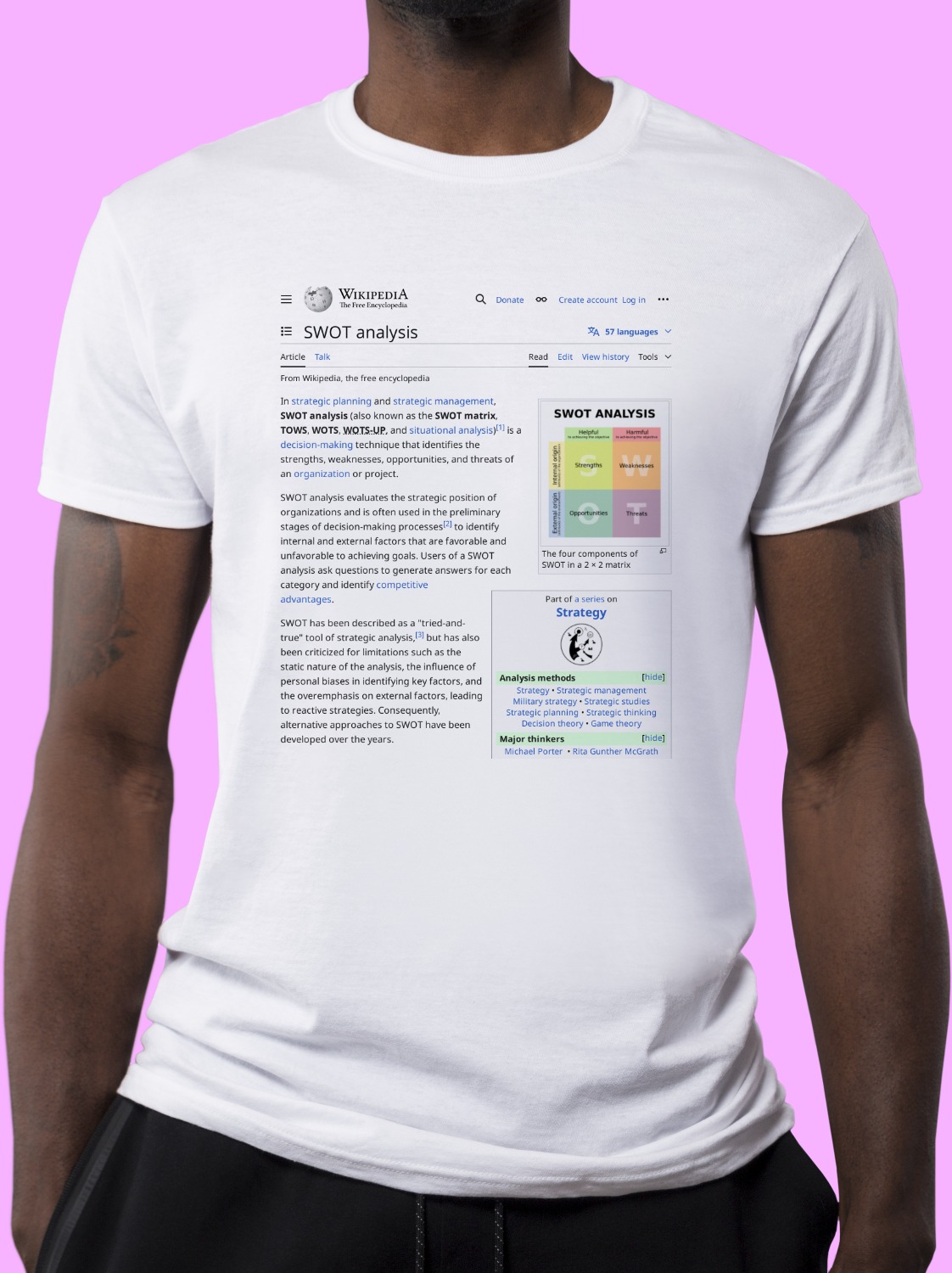
SWOT analysis Shirt
A classic cotton tee emblazoned with the Wikipedia article on SWOT analysis ↗.
cotton tee emblazoned with the Wikipedia article on SWOT analysis ↗.- Preshrunk jersey knit
- Seamless double-needle 2.2 cm collar
- Taped neck and shoulders
- Tear away label
- Double-needle sleeve and bottom hems
- Quarter-turned to eliminate centre crease
In strategic planning and strategic management, SWOT analysis (also known as the SWOT matrix, TOWS, WOTS, WOTS-UP, and situational analysis) is a decision-making technique that identifies the strengths, weaknesses, opportunities, and threats of an organization or project.
SWOT analysis evaluates the strategic position of organizations and is often used in the preliminary stages of decision-making processes to identify internal and external factors that are favorable and unfavorable to achieving goals. Users of a SWOT analysis ask questions to generate answers for each category and identify competitive advantages.
SWOT has been described as a "tried-and-true" tool of strategic analysis, but has also been criticized for limitations such as the static nature of the analysis, the influence of personal biases in identifying key factors, and the overemphasis on external factors, leading to reactive strategies. Consequently, alternative approaches to SWOT have been developed over the years.
About Wikishirt
Wikishirt is a retail experiment that lets you buy a shirt with any Wikipedia Article printed on it. There are over 5 million Wikipedia articles, so we have over 5 million shirts.Check out our homepage for random featured shirts and more!